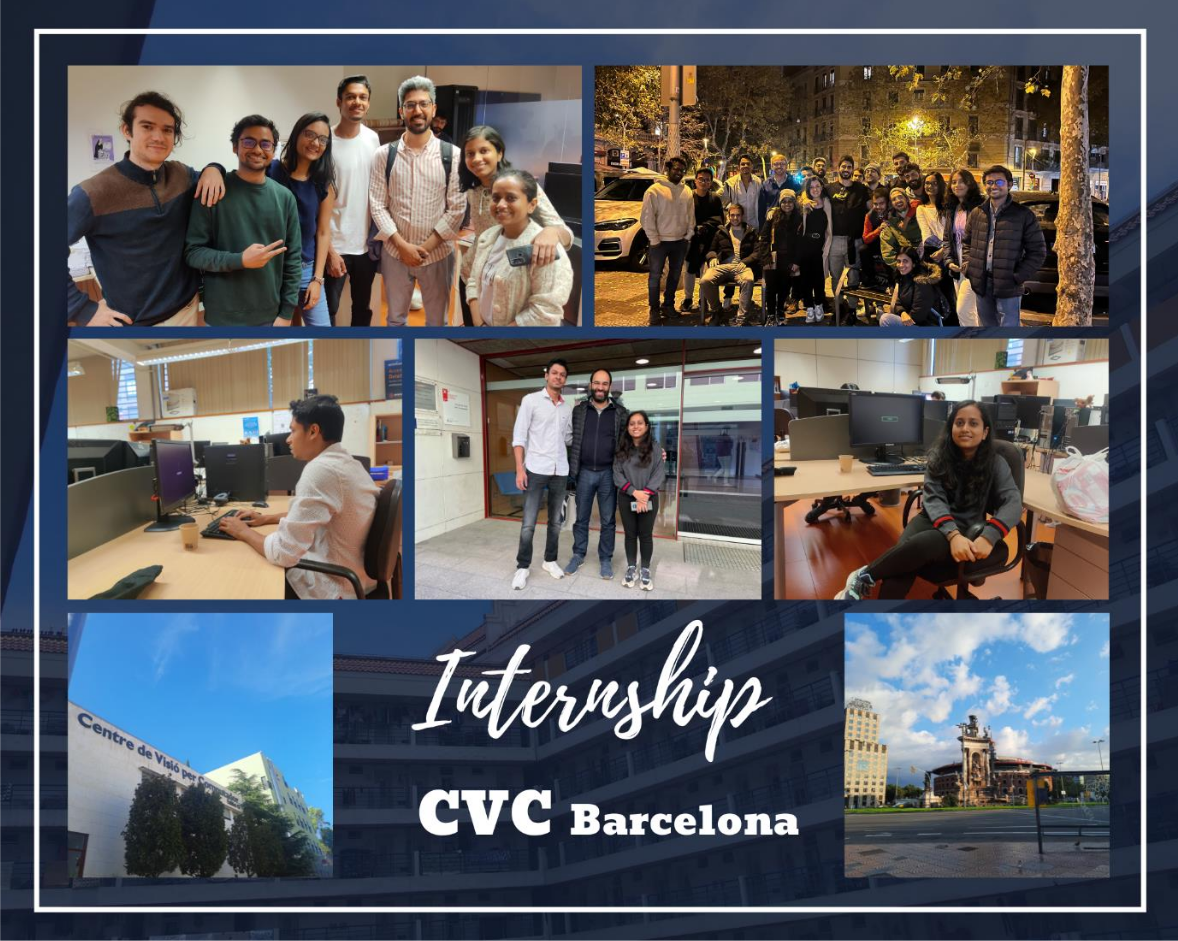The interns will get to learn about the research culture in an international and diverse environment with more than 100 researchers from more than 20 different countries. They will be trained in the current state-of-the-art methodologies related to computer vision and will be provided with high-performance computing facilities. The students will participate in regular complementary activities (reading groups, seminars, etc.).
What is the criteria/selection process for getting into CVC internship?
To promote science and innovation and encourage research in highly talented young students, the Computer Vision Center hosts the Computer Vision Center Internship Program. Undergraduate students worldwide with excellent academic records are invited to apply for an internship at the CVC.
In general, a prompt is sent out to everyone regarding the CVC internship. Students who are interested are supposed to apply using a reference letter and motivation letter along with a preference for an advisor with whom they want to work in CVC. So usually if anyone wants to apply, they can simply go through the CVC website and then look at it.
Can you choose the topic of interest and the professor you want to work with?
CVC lists out who the professors are and the groups and then one can choose the topic of interest. Soumya and George were working in document understanding, so their choice was document, understanding, and analysis group. There are other groups in CVC. Students interested in applying can go through the list of professors and apply.
How was the work environment different from India?
Working in the lab was comfortable since everyone spoke English and we got along well with the team. With fellow lab mates, we share a similar understanding in terms of research. It was like the atmosphere here at CVIT LAB. But when it comes to living in Spain and traveling around, we faced a few obstacles since people spoke more Spanish.
About Living in Barcelona.
Living in Barcelona was a little difficult because people over there don’t speak much English. We had to cook on our own and purchase our groceries. So that was a completely different experience and a different environment.
How are the expenses covered during your training?
The expenses during training are in two categories. One is for stay and accommodation, travel and accommodation, and the other is like a monthly stipend. This could cover all the travel expenses and then the monthly stipend covers the rest.
How difficult was it to find accommodation?
We actually had a lot of difficulty in finding good accommodation. The hostel rooms were full and the ones that were available were very expensive and on long term stay basis. So the only option left was to look for accommodation sharing with families or a house that takes in paying guests.
Sowmya choose accommodation with a Spanish family. George too found a house to stay outside campus and then moved to a building in campus with four other people.
Was there any certification given on completing Internship?
We actually asked them for a training completion certificate. Usually, they don’t have any such document. We did our internship under Dr Dimosthenis Karatzas.
In your words, what do you suggest to people who want to do an internship outside India?
First, is to find the professor of your interest that is also working on the same topic, in any university you would like to do an internship. Then approach them directly or like the opportunities given by CVC. The internship duration is around six months.
Second, apply for a visa before the internship starts. We had to postpone our internship because the visa didn’t come on time. Also, start looking for accommodation at the same time. But it's very good to have an advisor who is very much inclined to the research topic that you are working on so that it helps in research as well.


